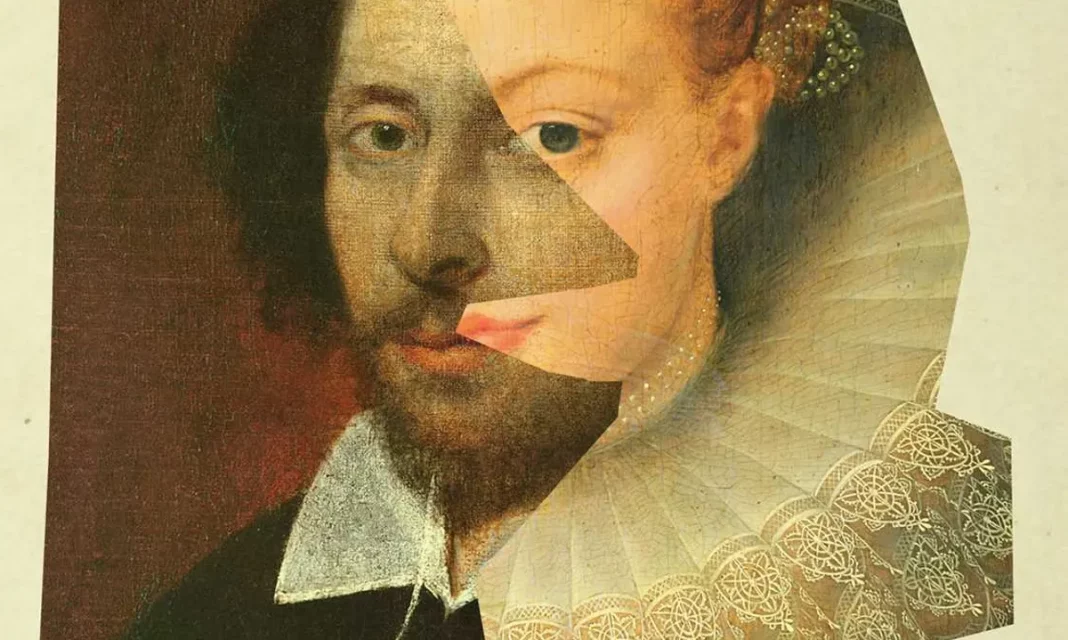William Shakespeare. The name conjures images of theatrical brilliance, timeless sonnets, and profound explorations of the human condition. But a question lingers, a question that has sparked centuries of debate: Was Shakespeare a Woman?
This enduring mystery casts a long shadow over the Bard’s legacy. While historical records paint a picture of a successful businessman from Stratford, the vast knowledge and profound insights woven into his plays seem incongruous with this seemingly ordinary life. Could the true author have been someone else entirely, perhaps a woman from a more privileged background with firsthand experience of courtly life and the complexities of human emotions?
This article dives deep into the ongoing debate surrounding Shakespeare’s authorship. We’ll explore the life of William Shakespeare himself, examining the gaps in his documented background that fuel the authorship question. We’ll then delve into the intriguing theories put forth by proponents of alternative authorship, including prominent figures like Edward de Vere and Mary Sidney Herbert.
But the exploration doesn’t stop there. We’ll also analyze the plays themselves, searching for clues within the language, references, and themes that might hint at the author’s true identity. Did the author possess a surprisingly sophisticated vocabulary or display an uncanny familiarity with legal matters, experiences uncommon for women of that era?
Join us on this captivating journey as we unveil the layers of this enduring enigma. Can we ever definitively answer the question: Was Shakespeare a Woman? Perhaps not. But by delving into the evidence and exploring the various possibilities, we gain a deeper appreciation for the genius behind these timeless masterpieces.
The Bard of Avon: A Life Shrouded in Mystery
William Shakespeare, the name synonymous with theatrical brilliance, remains an enigma even centuries after his death. Hailing from Stratford-upon-Avon, England, Shakespeare’s documented life paints a picture of a successful businessman and theater owner, but offers little insight into the man who penned some of the greatest works in the English language.
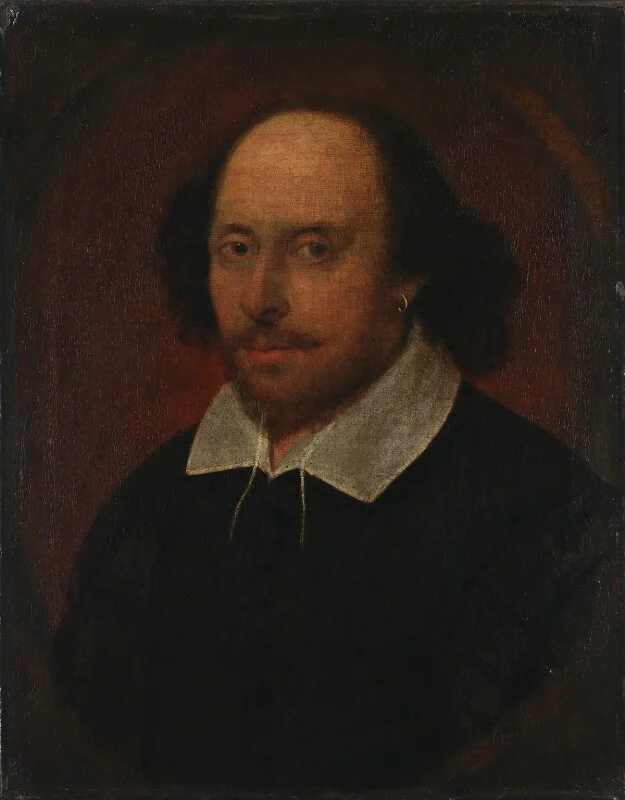
Baptized in 1564, William was the son of John Shakespeare, a glover and alderman, and Mary Arden. He married Anne Hathaway at the young age of 18 and had three children with her. Records show he invested in theatrical ventures in London, eventually becoming a part-owner of the Globe Theatre. While his professional life flourished, details about his education and early adulthood are scarce.
Was Shakespeare a Woman? This lack of documented schooling and theatrical experience fuels the ongoing debate surrounding Shakespeare’s authorship. The vast knowledge of history, courtly life, legal matters, and human psychology woven into his plays seems incongruous with the life story of a man from a small town with no apparent university education or formal training in theater. The question “Was Shakespeare a Woman?” first emerged in the 18th century and has gained significant traction in recent years. Proponents of alternative authorship theories argue that a woman, possibly from a more privileged background, could have possessed the necessary knowledge and life experiences reflected in the plays.
This lack of documented schooling and theatrical experience fuels the ongoing debate surrounding Shakespeare’s authorship. The vast knowledge of history, courtly life, legal matters, and human psychology woven into his plays seems incongruous with the life story of a man from a small town with no apparent university education or formal training in theater. The question “Was Shakespeare a Woman?” first emerged in the 18th century and has gained significant traction in recent years. Proponents of alternative authorship theories argue that a woman, possibly from a more privileged background, could have possessed the necessary knowledge and life experiences reflected in the plays. Explore this theory further in our article The Simpsons Predictions That Came Absolutely True Explained.
The mystery surrounding Shakespeare’s authorship adds another layer of intrigue to his already phenomenal legacy. Was Shakespeare a Woman? While the debate continues, one thing remains undeniable: the enduring power of his words and the timeless themes explored in his plays.
Unveiling the “Other” Candidates: A Search for the True Author
William Shakespeare of Stratford may be the credited author of some of the most celebrated plays in history, but the question of “Was Shakespeare a Woman?” continues to spark debate. Throughout history, several alternative candidates have emerged, each with their own intriguing set of arguments.
Edward de Vere, the 17th Earl of Oxford (1550-1604), stands as one of the most prominent contenders. De Vere was a highly educated aristocrat with documented travels across Europe, experiences reflected in the plays’ references to foreign locations and courtly life. Proponents point to parallels between de Vere’s life and themes explored in the plays, such as the loss of favor and social anxieties – experiences a woman of that era would be unlikely to have. Additionally, some see hidden messages and coded references to de Vere’s life within the plays themselves. However, critics argue that documented evidence linking de Vere directly to playwriting is absent.
Mary Sidney Herbert, Countess of Pembroke (1561-1621), is another intriguing candidate. A highly educated and accomplished writer herself, Sidney Herbert was surrounded by literary circles and known for her patronage of the arts. Supporters of her authorship point to the plays’ nuanced portrayal of female characters and the exploration of themes often associated with women’s experiences during that period. They argue that a woman with Sidney Herbert’s background and intellect could have possessed the necessary knowledge and wit to write the plays, even if she had to publish them anonymously due to societal restrictions on female playwrights. However, the lack of any concrete evidence directly linking Sidney Herbert to the plays remains a significant hurdle for this theory.
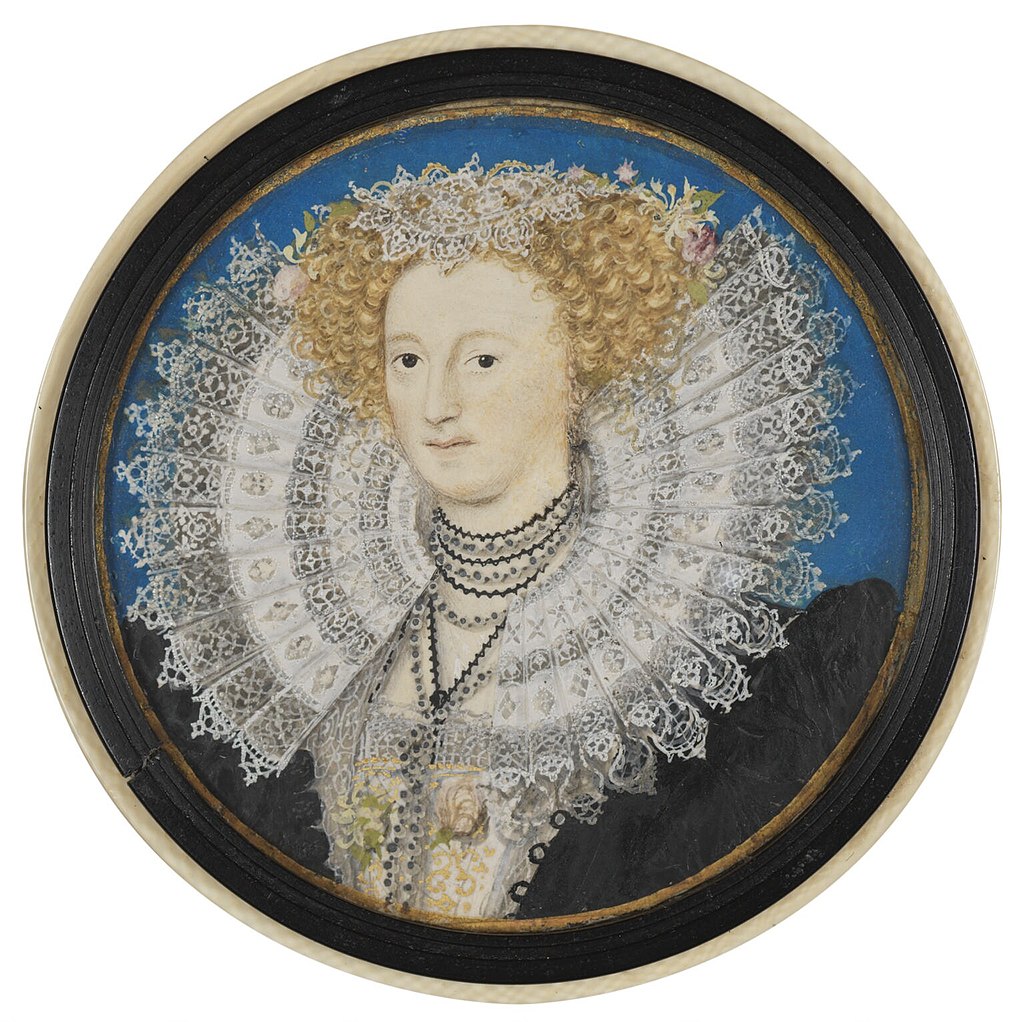
These are just two of the many alternative candidates proposed over the centuries. Each theory offers a unique perspective on Shakespeare’s authorship, adding to the ongoing debate. While the lack of definitive proof makes it difficult to definitively say “Was Shakespeare a Woman?” or identify another author with certainty, these alternative candidates highlight the complexity of the authorship question and the fascinating possibilities it presents.
Enter Elizabeth Winkler: “Shakespeare Was a Woman and Other Heresies”
The question of “Was Shakespeare a Woman?” took center stage again with the 2023 publication of Elizabeth Winkler’s book, “Shakespeare Was a Woman and Other Heresies.” Winkler, a respected journalist and literary critic, throws a fresh light on the authorship debate by focusing on the depth and complexity with which Shakespeare’s plays portray female characters.
Traditionally viewed as a male domain, Elizabethan theater offered few opportunities for women to take center stage, both literally and figuratively. Winkler argues that the nuanced understanding of female emotions, desires, and societal constraints displayed in the plays points towards a writer with firsthand experience of these realities. She highlights characters like Lady Macbeth, Rosalind, and Cleopatra, who defy traditional stereotypes and exhibit a level of psychological complexity that some argue is unlikely to have come from a male playwright of the era.
Was Shakespeare a Woman? Beyond character portrayal, Winkler delves into potential hidden messages and biographical connections that could support a female author. She explores the use of language associated with women’s domestic lives, such as needlework and childbirth metaphors, in unexpected contexts. Was Shakespeare a Woman? Additionally, Winkler analyzes biographical details of potential female candidates, searching for parallels with themes and events explored in the plays.
While Winkler doesn’t offer a definitive answer to the question “Was Shakespeare a Woman?” – and doesn’t propose a single female candidate – her book reignites the debate by presenting a compelling case for a female perspective behind the Bard’s brilliance. “Shakespeare Was a Woman and Other Heresies” challenges readers to reconsider the traditional narrative of Shakespeare’s authorship and opens the door to a wider range of possibilities.
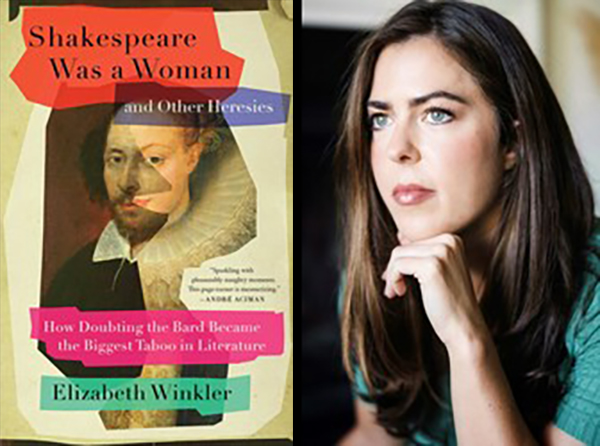
Beyond Biography: Examining the Plays Themselves
The debate surrounding Shakespeare’s authorship extends beyond the lives of documented figures. While William Shakespeare of Stratford remains the credited author, a closer look at the plays themselves offers intriguing clues that continue to fuel the question “Was Shakespeare a Woman?”. By analyzing the language, references, and themes woven into the plays, scholars can potentially paint a clearer picture of the author’s background and knowledge.
Linguistic mastery is a hallmark of Shakespeare’s work. The plays showcase a vast vocabulary, an exceptional grasp of grammar, and a playful use of puns and wordplay. Proponents of alternative authorship theories argue that the level of sophistication displayed suggests an education and level of literacy uncommon for someone from Shakespeare’s documented background. Was Shakespeare a Woman? While some argue this could simply be a testament to his natural genius, others posit that a woman from a more privileged household could have received a clandestine education, allowing her to develop the necessary linguistic skills.
References and allusions scattered throughout the plays offer another avenue for exploration. The plays display a surprising familiarity with a wide range of topics, including legal proceedings, falconry, courtly life, and even specific historical events. While some argue this knowledge could be attributed to research or exposure to theater, others point to the depth and accuracy of these references as evidence of firsthand experience. The question then arises: “Was Shakespeare a Woman” of a higher social class who would have had access to such information?
The portrayal of legal matters in the plays is another point of contention. Several plays depict courtroom scenes with remarkable detail and accuracy. This has led some to speculate that the author may have had legal training or experience, opportunities unlikely for a woman of that era. However, others argue that playwrights often drew inspiration from real-life court cases or consulted with legal professionals to ensure the accuracy of their portrayals.
Themes explored in the plays can also offer insights. Was Shakespeare a Woman? While Shakespeare doesn’t shy away from portraying the harsher realities of women’s lives, the plays also feature strong, independent female characters who defy societal expectations. This nuanced understanding of female experience has led some to believe the author could have been a woman herself. However, it’s important to acknowledge that playwrights can explore themes beyond their own lived experiences.
Ultimately, analyzing the plays themselves offers a rich tapestry of clues, but definitive answers remain elusive. The question “Was Shakespeare a Woman?” continues to spark debate, highlighting the complexity of the authorship question and the enduring power of Shakespeare’s work.
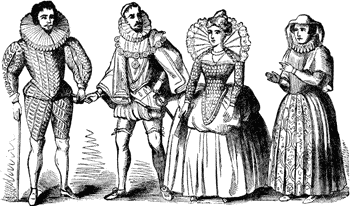
The Enduring Enigma of Was Shakespeare a Woman?: Can We Ever Know for Sure?
Centuries after his death, William Shakespeare’s authorship of his iconic plays remains a topic of fervent debate. The question “Was Shakespeare a Woman?” continues to ignite passionate arguments, with proponents of alternative authorship theories presenting compelling arguments. However, despite the ongoing discussions, a definitive answer remains elusive.
The challenge lies in the limitations of historical record-keeping from the Elizabethan era. Detailed personal records, particularly for women, were scarce during this time. This lack of concrete evidence makes it difficult to definitively link any alternative candidate, male or female, to the authorship of the plays. It is precisely this gap in our knowledge that has fueled the ongoing debate about whether William Shakespeare himself wrote the plays, or if the true author was someone else, perhaps even was Shakespeare a Woman.
In the absence of conclusive biographical proof, literary analysis takes center stage. By meticulously examining the plays themselves, scholars can glean valuable insights into the author’s background, knowledge, and perspective. The richness of the language, the depth of references, and the nuanced exploration of complex themes all offer clues to the author’s identity. While these analyses can’t definitively answer “Was Shakespeare a Woman?”, they can help us piece together a more complete picture of the playwright’s genius.
Regardless of the authorship question, one thing remains undeniable: the enduring power of Shakespeare’s work. His plays transcend time and continue to resonate with audiences worldwide. The humor, tragedy, and timeless themes explored in his works have captivated imaginations for generations. Whether written by William Shakespeare of Stratford or another, equally talented, individual, the brilliance of these plays remains uncontested.
The debate surrounding Shakespeare’s authorship is far from over. New research methods and potential discoveries of hidden documents might one day shed light on this enduring enigma. In the meantime, the question “Was Shakespeare a Woman?” serves as a reminder of the ongoing quest to understand the creative mind behind these literary masterpieces.
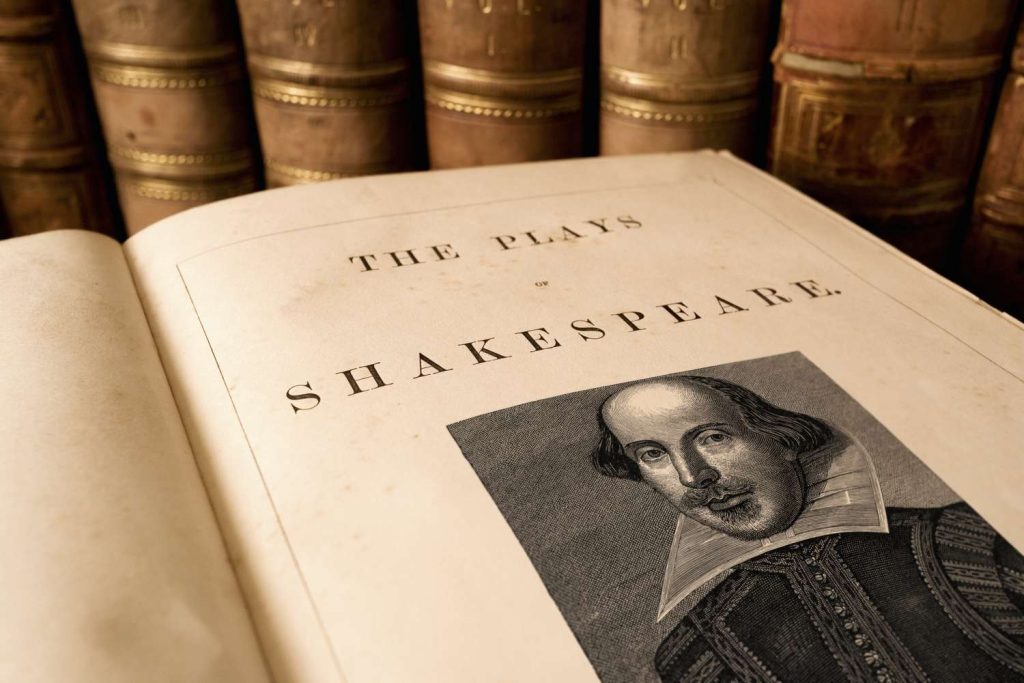
Frequently Asked Questions (FAQs)
1. Why is there a question about Shakespeare’s authorship?
The main reason for the authorship debate is the gap between William Shakespeare’s documented life and the vast knowledge displayed in his plays. The plays showcase a deep understanding of history, courtly life, legal matters, and human psychology, which seems incongruous with what we know about Shakespeare’s background. This has led some to question [Was Shakespeare a Woman?] and propose alternative candidates.
2. Who are some alternative candidates for authorship?
Several alternative candidates have been proposed over the centuries, including Edward de Vere, the 17th Earl of Oxford, and Mary Sidney Herbert, Countess of Pembroke. Each candidate has their own set of arguments based on factors like their education, social status, and the themes explored in the plays.
3. Is there any evidence to support these alternative theories?
The evidence for alternative authorship is circumstantial. Proponents point to parallels between the candidates’ lives and themes in the plays, as well as the plays’ references to topics that align with the candidates’ experiences. However, there’s no definitive proof linking any specific candidate to the authorship.
4. What is the impact of the authorship debate on Shakespeare’s work?
Regardless of the authorship question, the enduring power of Shakespeare’s work remains undeniable. His plays continue to resonate with audiences worldwide, offering timeless themes and profound insights into the human condition.
5. Will we ever definitively know who wrote Shakespeare’s plays?
The limitations of historical record-keeping from the Elizabethan era make it difficult to find conclusive evidence to to question Was Shakespeare a Woman?. New research methods or discoveries might shed light on the authorship in the future. In the meantime, the debate continues to spark interest in Shakespeare’s genius and the creative process behind these literary masterpieces.


